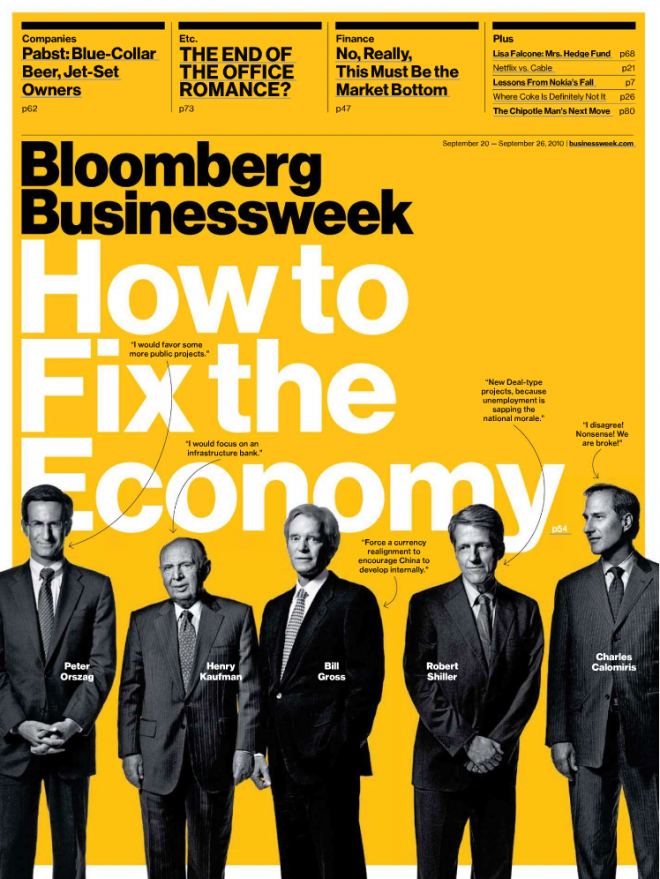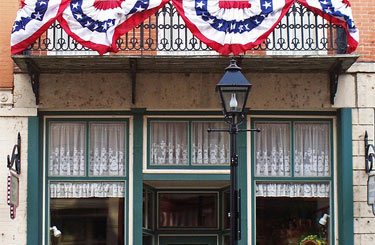This commentary originally appeared in the August 26, 2012, issue of Business Week.
For six years, Pennsylvania Governor Ed Rendell has tried to give a tax cut to businesses in his state. And year after year the Democratic governor’s proposal has been stymied by a surprising foe: the state’s business lobby.
Both the Pennsylvania Chamber of Business & Industry and the state chapter of the National Federation of Independent Business (NFIB) have opposed Rendell’s plan to slash the business income-tax rate. Why? The plan would close a loophole that allows certain multi-state companies—mainly retail chains and banks—to shield profits earned in Pennsylvania from state taxes. In other words, for the Chamber and NFIB, ensuring that a handful of corporations continue to enjoy a tax break is worth denying thousands of small businesses a tax cut.
The U.S. Chamber of Commerce and the NFIB, together with their state-level affiliates, are among the country’s most powerful lobbying forces. While they claim to speak for small business, a look at their lobbying record suggests their primary allegiance lies elsewhere. The U.S. Chamber has fought to preserve offshore tax havens that only multinationals can use, leaving small businesses at a disadvantage. Both the NFIB and affiliates of the Chamber have lobbied in various states to maintain loopholes like Pennsylvania’s. And neither group has contested the multi-million-dollar tax breaks cities routinely bestow on big-box retailers to the detriment of their independent rivals.
Although the Chamber says it represents 3 million small businesses, that’s misleading. The figure includes members of local and state chambers, which have no say over the national group’s activities. The U.S. Chamber’s direct membership includes some 300,000 small businesses, or about 1 percent of the total nationwide. While small businesses are prominent in its press releases, they’re scarce in its boardroom; the vast majority of the Chamber’s 125 board members represent large corporations. “Our policy priorities are closely aligned with our small-business members,” and the Chamber has a committee that focuses on them, says Giovanni Coratolo, the Chamber’s vice-president for small-business policy.
All 300,000-plus members of the NFIB are small businesses. Yet their politics are out of sync with the broader small-business community. While an American Express poll shows that 32 percent of small-business owners are registered as Democrats and 33 percent are Republicans, 85 percent of the NFIB’s campaign contributions went to Republicans in 2008, according to the Center for Responsive Politics. “Our job is to represent our members,” says NFIB spokeswoman Stephanie Cathcart. “Do they skew right? Yes, they do. But they are thinking as business owners.”
The NFIB’s close ties to Republicans may explain its effort to downplay the effect of the credit crisis on small businesses. Ever since President Barack Obama proposed the small-business lending bill now stalled in the Senate, the NFIB has said access to credit is a low priority. An NFIB survey, though, showed that 55 percent of small employers sought loans in 2009, and over half of those couldn’t meet all of their borrowing needs. While the NFIB and the Chamber say they don’t oppose the lending bill, neither has done much to persuade Congress to vote for it. Compare that with the full-court press both groups waged against the financial reform bill. Small businesses paid dearly for Wall Street’s excesses and, as frequent users of credit cards and home equity loans to finance their growth, have much to gain from stronger consumer protections. Yet the U.S. Chamber and NFIB repeatedly cited the interests of small business as a reason to oppose the bill.
Given the disconnect between the lobbying efforts of the Chamber and the NFIB and the interests of those they say they represent, others are starting to speak up for small business. Local chambers in New York, San Antonio, and elsewhere have distanced themselves from the U.S. Chamber. More than 100 independent groups have sprung up in recent years, many of them affiliated with one of several national networks such as the American Independent Business Alliance (where I serve on the board) and the National Small Business Assn. The Chamber and the NFIB “are on a totally different track on almost all of the issues that we care about,” says Betsy Burton, a bookstore owner in Salt Lake City who in 2005 co-founded Local First Utah, a group of nearly 3,000 independent businesses.
These groups are carving out their own identity and frequently clash with the Chamber and the NFIB on issues such as tax policy and health care. “If you believe NFIB and the U.S. Chamber, [the health-care reform bill] is all awful,” says Scott Hauge, president of Small Business California, a five-year-old network of about 5,000 small businesses. “But there are good things in that bill that will help many small businesses.”





